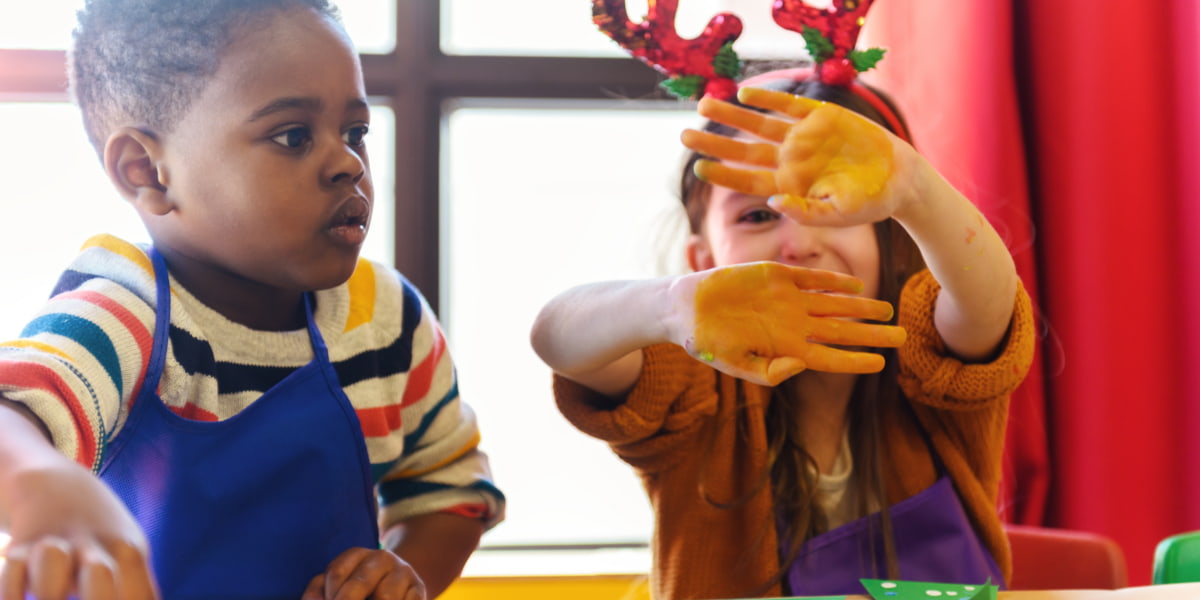Christmas may be “the most wonderful time of the year” but it’s also an expensive time of year. But there are lots of ways we can save money and still have a great Christmas. Many of these money saving tips have the added advantage of being much better for the planet too – so let’s try dreaming of a green Christmas that won’t get us into the red!
For more ways to have a “greener”, more sustainable Christmas, visit the Zero Waste Scotland website.
Christmas money saving tips
Tip #1: Set a budget
At this time of year it can be tempting to buy everything you think you need and worry about paying for it later. But if you set yourself a budget, this will help you choose between what you need and what you can probably do without. So work out what you can realistically afford, then list everything you want to buy, with a rough cost next to each item. Then you can prioritise the things you really need and cross some of the less important things off the list.
Tip #2: Shop second-hand
Looking to save on presents? Charity shops and second-hand stores are great places to shop for toys, clothes, decorations, homeware and lots of other things. Shopping second-hand is not only a great way to save money, you’ll also be doing your bit for the environment. Buying a pre-loved item means one less new product that needs to be made.
If you can’t get to the shops, lots of charities also offer online shopping too, such as Revolve certified stores Kidzeco and Merry-go-round Glasgow, and you can shop second-hand on sites like eBay, Preloved and Vintage. Our page on second-hand shopping and the Zero Waste Scotland website have more ideas.
Tip #3: Swap don't buy
Are you always tripping over toys? Instead of buying the kids yet more for Christmas, you could consider getting a subscription to a toy swapping service like Whirli. This is a great thing to suggest if grandparents or aunts and uncles are keen to get gifts for the kids.
Tip #4: Have a clear out
To raise a bit of extra money and clear some space in your cupboards, why not sell some unwanted items online? The clothes hanging in your wardrobe that you never wear, those toys the kids have outgrown or even the Christmas presents from last year you never found a use for – they could all be just what someone else is looking for! Websites like eBay, Shpock, Preloved and Gumtree can help you turn unwanted items into cash.
Tip #5: DIY decorations
Making your own festive decorations is a great way for the kids to get crafty using objects you have lying around the house. How about making paper chains from old magazines or stars from tin foil? Or turning jam jars into lamps by covering them with tissue paper and putting LED tealights inside? Here are some more fun, inexpensive ideas for them to try
Tip #6: Give an experience or a promise instead of a gift
Rather than buying a present for a friend or family member, how about giving them an experience or a promise instead? You could send them a promise to go to the pictures together, have dinner or enjoy a spa treatment. Or you could offer them a service instead, like cooking them a meal, babysitting or doing some gardening for them. If you don’t fancy drawing your own voucher you can download some nice templates here.
You could also keep an eye on voucher sites like ItIsOn, GroupOn and Wowcher for discounted experiences.
Your kids can also get in on the act, making their own vouchers for you and other family members. How do you fancy breakfast in bed, or the washing up done for a week? You could give them ‘promise vouchers’ too – like a sleepover with their friends or a trip to soft play.
Tip #7: Make a donation
Tip #8: Make a ‘no present’ pact with friends
You may feel like Scrooge suggesting to your friends that you give presents a miss this year, but chances are they’ll be relieved! With everyone feeling the pinch, one less person to buy for could make all the difference.
Tip #9: Secret Santa and family gifts
If you’re part of a big family, you may struggle to buy presents for everyone. So instead, why not suggest buying one gift per family? This could be something like some tasty food, an item for their home, a board game that everyone can enjoy, or even a charity donation, as suggested above.
Or you could set up a Secret Santa, where everyone is secretly given the name of somebody else in the family and has to buy a present just for them, within an agreed price limit. This way everyone gets a present, but no-one has to spend too much.
Tip #10: Set a price limit
If Secret Santa isn’t for you, how about setting a price limit anyway? Why not set yourself a challenge to find gifts for under a fiver?
Tip #11: Make your own presents
They say it’s the thought that counts, and there’s nothing more thoughtful than a home-made gift. But if you’re throwing up your hands in horror at the very idea, just think, an afternoon spent in the kitchen making sweets and biscuits with the kids could be far less stressful (and expensive) than dragging them round busy shops in December. Get the kids to decorate some boxes or jars to pack them up in and – tada! Lovely home-made gifts. Here are some festive ideas from the BBC Food website.
Tip #12: Recycle and reuse
Reusing wrapping paper and getting the kids to make their own cards and gift tags is another good way to save money and the environment. All those festive leaflets that come through the door can be cut up and made into collages on cards, old cards can be made into gift tags and the kids can get creative with cotton wool, coloured paper and biodegradable glitter – here are some cute card ideas they could try.
Buying a roll of plain paper and then decorating it is also much cheaper (and more environmentally friendly) than buying gift wrap, which often isn’t recyclable. Wrapping paper often has to be recycled after just one use, so using preloved fabrics for wrapping paper is another great way to avoid this. There are lots of ideas for decorating wrapping paper here that the kids could have a go at. Keeping them busy, saving money and helping the environment? Win win win!
Tip #13: Plan your festive food in advance
Food is another big expense at Christmas – and a lot of it can end up going to waste. So to make sure you’re not buying a single sprout more than you need to, it’s a good idea to plan the meals you’ll be having over the festive period in advance, and then only buy what you need. It’s tempting when we’re doing ‘the big Christmas shop’ to slip all kinds of little luxuries like fancy cheese and chocolates into the trolley (whether the trolley is real or virtual) but if you don’t know when you’re going to eat it, try not to buy it! This portion planner at Love Food Hate Waste is a useful tool to help you work out how much you need to buy.
There’s also lots of advice on the Love Food Hate Waste Scotland website on making your food go further.
Tip #14: Go veggie this Christmas
Meat is a big expenditure over Christmas, so one way to save and reduce your carbon footprint is to go veggie. You can still create a sense of occasion with these festive recipes from BBC Good Food. You can find out more about eating greener at the Net Zero Nation website.
Tip #15: Stay safe
At this time of year it can be tempting to try and save on Christmas presents by buying cheaper toys online. But sadly there are cheap toys for sale on online marketplaces that haven't been safety tested and could seriously harm your child. If a price seems too good to be true, sadly it probably is. So to help you tell a dodgy toy website from a safe one, the Child Accident Prevention Trust have put together a guide to help you save money but still buy safely.
Very low prices could also be a sign that an offer is a scam – if you’re not sure about something you’ve seen online or in an email or text, use Citizens Advice Scotland’s online checker to make sure.
Help with money
We all know that being a parent can cost a lot of money. If you’re struggling to make your money last to the end of the week/month or are worried about how you’ll pay your bills, you’re definitely not alone! The Money Talk Team are a great resource for helping parents make their money go further and making sure that you’re not missing out on support you’re entitled to.
 Activities & Play
Activities & Play Behaviour
Behaviour Childcare
Childcare Development & Growing Up
Development & Growing Up Family, Friends & Relationships
Family, Friends & Relationships Feeding Your Baby
Feeding Your Baby Food & Eating
Food & Eating Health & Safety
Health & Safety Mental Health & Wellbeing
Mental Health & Wellbeing Money & Work
Money & Work Online Behaviour & Safety
Online Behaviour & Safety Pregnancy & First Days
Pregnancy & First Days School & Education
School & Education Sleep
Sleep









 Childcare
Childcare
 School & Education
School & Education